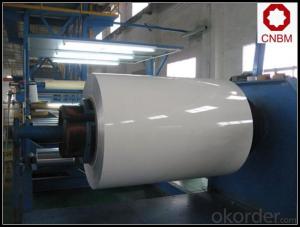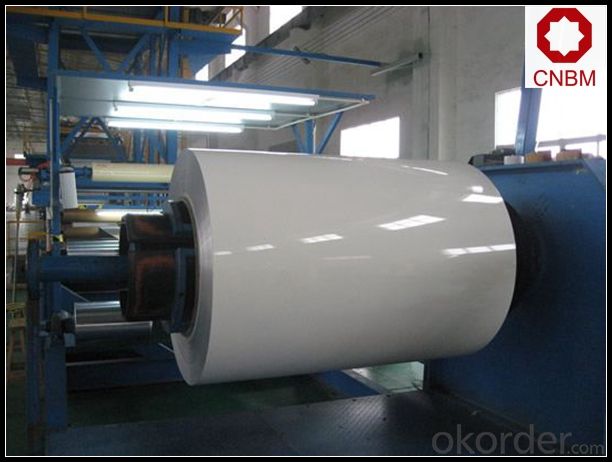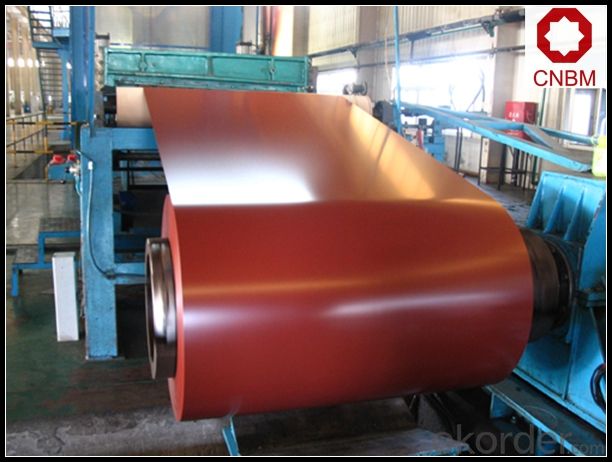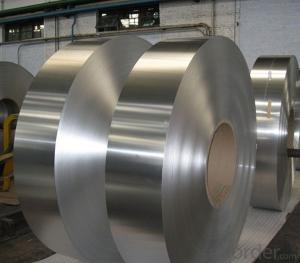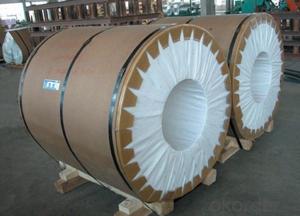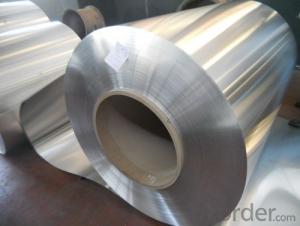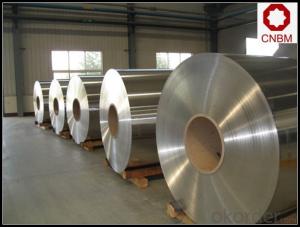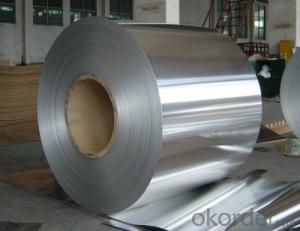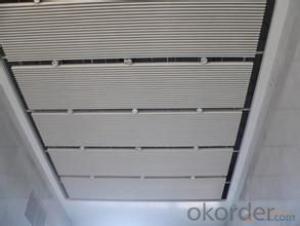Aluminum Bronze Coil for Aluminum Ceiling 1 Series
- Loading Port:
- Shanghai
- Payment Terms:
- TT OR LC
- Min Order Qty:
- 5 m.t.
- Supply Capability:
- 10000 m.t./month
OKorder Service Pledge
OKorder Financial Service
You Might Also Like
Specification
1. Specification of Color Coated Aluminum Coil
1) Alloy | 1050, 1060,1100, 3003 3004 3105 3A21 5005 5052 etc |
2) Temper | O/H12/H14/H1/H18/H32/H34/H36/H38//H111/H112/H116/H321/T6/T651/T3/T351 etc |
3) Thickness | 0.1mm to 6mm |
4) Width | 20mm to 3300mm |
5) Coil weight | 100kgs to 6 tons depends on actual requirement |
6) Core material | Aluminum or paper |
7) Coil Inner diameter | 75mm, 150mm, 200mm, 300mm, 405mm, 505mm or as required |
8) Protective film can be added
2. Application of Color Coated Aluminum Coil
(1).Interior: wall cladding, ceilings, bathrooms, kitchens and balconies, shutters, doors...
(2).Exterior: wall cladding, facades, roofing, canopies, tunnels,column covers , renovations...
(3).Advertisement: display platforms, signboards, fascia, shop fronts...
3. Feature of Color Coated Aluminum Coil
*Such coil is specially designed to replace aluminum ingot, due to the high export tax of aluminum ingot, the coil has better price than ingot.
*This type of coil can fit customer's remelting furnace just like ingot, no need to make any change to the production line that was previously used for ingot. The standard coil size and weight is very suitable for the feed gate of furnace.
*This type of coil causes less material wastage than ingot when remelted.
*Our coil is made directly from ore, no need to go though the ingot making process, quality is much better than other suppliers who use ingot scrap to make coil.
Be free from Oil Stain, Dent, Inclusion, Scratches, Stain, Oxide Dicoloration, Breaks, Corrosion, Roll Marks, Dirt Streaks and other defect which will interfere with use
4. Certificate:
SGS and ROHS(if client request, paid by client), MTC(plant provided), Certificate of Origin(FORM A, FORM E, CO), Bureau Veritas and SGS (if client request, paid by client), CIQS certificate
5. Image of Color Coated Aluminum Coil
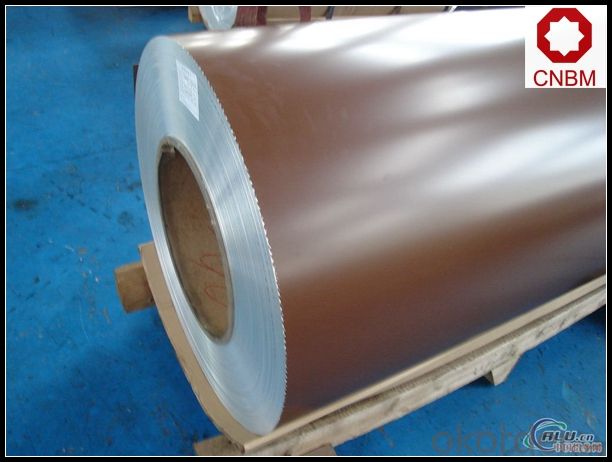
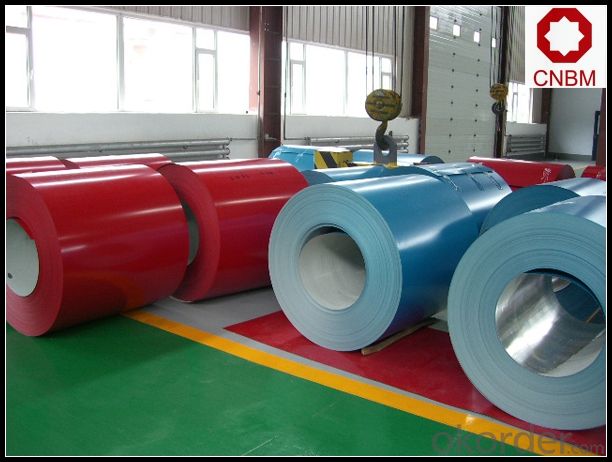
6. Package and shipping of Color Coated Aluminum Coil
eye to wall
eye to the wall
with wood pallet (wooded case also available)
7. FAQ
1) What is the delivery time?
Dpends on actual order, around 20 to 35 days
2)What is the QC system:
We have QC staff of 20 persons and advanced equipment, each production is with MTC traced from Aluminum ingot lot.
3) What market do you mainly sell to?
Australia, America, Asia, Middle East, Western Europe, Africa etc
- Q: What are some common types of aluminum coils used in various industrial applications?
- <p>Yes, there are several types of aluminum coils commonly used in industry. These include: 1) Plain aluminum coils, which are used in packaging and construction. 2) Embossed aluminum coils, utilized for decorative purposes and in the automotive industry. 3) Painted aluminum coils, often used in building materials and appliances. 4) Galvanized aluminum coils, which are corrosion-resistant and used in exterior applications. 5) Heat-treated aluminum coils, known for their strength and used in aerospace and automotive parts. Each type serves specific purposes based on the properties of the aluminum and the coatings or treatments applied.</p>
- Q: Can aluminum coils be used in food processing applications?
- Yes, aluminum coils can be used in food processing applications. Aluminum is a widely used material in the food industry due to its excellent thermal conductivity, corrosion resistance, and lightweight properties. Aluminum coils are commonly used in food processing equipment such as refrigerators, ovens, and food storage units to ensure proper temperature control and hygiene during food processing.
- Q: I was told today that taking aluminium inside your body greatly increases the chance of getting alzheimers as they destroy cells. Is this true?If so, then what foods contain aluminium?Thanks in advance :)
- complex aspect. research using the search engines. it can assist!
- Q: How do aluminum coils contribute to energy efficiency?
- There are several ways in which aluminum coils contribute to energy efficiency. To begin with, aluminum is a highly conductive metal, enabling it to transfer heat efficiently. When utilized in HVAC systems, aluminum coils aid in the efficient transfer of heat between the air and the refrigerant, resulting in faster cooling or heating of the space. Secondly, aluminum coils possess a lightweight nature and boast a high strength-to-weight ratio. This particular characteristic makes them easier to handle and install, ultimately reducing the overall weight of the HVAC system. The reduced weight not only enhances transportation and installation efficiency but also lessens the burden on the building structure. Moreover, aluminum coils exhibit durability and resistance to corrosion. This longevity ensures the smooth operation of the HVAC system for an extended period, thereby minimizing the need for frequent repairs or replacements. Consequently, less energy is wasted on maintenance or component replacements, resulting in improved energy efficiency. Additionally, aluminum is a recyclable material, and the utilization of aluminum coils in HVAC systems promotes sustainability. The recycling process for aluminum requires significantly less energy compared to the production of new aluminum, thereby reducing the overall carbon footprint and energy consumption. Lastly, aluminum coils are frequently manufactured with enhanced fin designs and advanced technology, such as microchannel coils. These advancements increase the surface area of the coil, thereby enhancing heat transfer efficiency and reducing the energy required for cooling or heating. In conclusion, aluminum coils contribute to energy efficiency by facilitating efficient heat transfer, reducing system weight, promoting durability, supporting sustainability through recycling, and incorporating advanced technology to enhance heat exchange.
- Q: How heavy and long is the aluminum rolling on average?
- The aluminum density is 2.7, and the average weight of molded aluminum coil is within 3.5 tons. But that depends on the molded width and thickness. The wider and thicker it is , the shorter it is.
- Q: What are the common joining techniques used for aluminum coils?
- Aluminum coils can be joined using various techniques, including welding, adhesive bonding, mechanical fastening, and soldering. When it comes to joining aluminum coils, welding is a widely used technique. Different welding methods, such as gas tungsten arc welding (GTAW or TIG), gas metal arc welding (GMAW or MIG), and laser welding, can be employed. These methods fuse the aluminum coils together, providing a strong and durable joint that ensures structural integrity. Another technique for joining aluminum coils is adhesive bonding. This method involves applying a suitable adhesive or bonding agent to join the coils. Adhesive bonding offers excellent flexibility, allowing for the joining of dissimilar materials and creating a smooth, aesthetically pleasing surface. It also distributes stress evenly across the joint, reducing the risk of fatigue failure. Mechanical fastening is another option for joining aluminum coils. This technique utilizes mechanical elements like bolts, screws, rivets, or clips. It is a relatively simple and cost-effective method, allowing for easy disassembly if needed. Mechanical fasteners provide good strength and stability, although periodic maintenance may be required to prevent loosening over time. Soldering is a low-temperature alloy-based technique for joining aluminum coils. It involves heating the solder to its melting point and allowing it to flow into the joint, creating a strong bond. Soldering is commonly used for electrical connections or delicate applications where excessive heat can damage the aluminum. However, it may not offer the same level of strength as welding or mechanical fastening. The choice of joining technique for aluminum coils depends on various factors, including specific application requirements, desired strength, appearance, and cost considerations.
- Q: Why does aluminum foil barely get hot in the oven, but catch fire in the microwave?
- the oven radiates heats it up by heating it from the outside in the microwave radiates microwaves to get water, sugar, and fat moving, heating the food from the inside and the outside. since the foil has none of these the bombardment of waves has a different effect. the atomic structure of the foil burns when it gets hit with microwaves
- Q: Are aluminum coils suitable for curtain wall systems?
- Yes, aluminum coils are highly suitable for curtain wall systems. Aluminum is a lightweight and durable material that offers numerous benefits for curtain wall applications. Firstly, aluminum coils are corrosion-resistant, ensuring the longevity and durability of the curtain wall system. This makes them ideal for exterior applications where the system is exposed to various weather conditions. Additionally, aluminum does not rust, which is a significant advantage over other materials like steel. Furthermore, aluminum coils can be easily extruded into various shapes and sizes, allowing for flexibility and creativity in curtain wall design. This enables architects and designers to create visually appealing and unique structures. Moreover, aluminum is a highly sustainable material. It is 100% recyclable, which means that it can be reused without any loss in quality. This makes aluminum coils an eco-friendly choice for curtain wall systems, aligning with the growing demand for sustainable building materials. Additionally, aluminum is a good conductor of heat and electricity, which can contribute to energy efficiency in curtain wall systems. By using thermal breaks and incorporating insulation, aluminum curtain walls can effectively regulate temperature and reduce energy consumption, leading to cost savings in the long run. Overall, aluminum coils are an excellent choice for curtain wall systems due to their corrosion resistance, versatility, sustainability, and energy efficiency.
- Q: An aluminum bar 3.80 m long has a rectangular cross section 1.00 cm by 5.00 cm, what is the resistance and what is the length of a copper wire 1.50 mm in diameter having the same resistance?
- first ,we will find out the cross sectional area Area= width* height =5.3*2.1=11.13cm^2 Area=11.13 *10^-4 m^2 shear stress = force /area =3.3*10^5/11.13*10^-4=0.296*10^9 Shear stress=2.96*10^8 N/m^2 shear modulus of aluminum=2.6*10^10 pa Shear strain =stress/modulus =2.96*10^8 / 2.6*10^10 =1.14*10^-2 =0.0114 from figure, strain=x/length 0.0114=x/220 (length in mm) x=0.0114*220 x=2.508 mm Ans: Shear deformation is 2.508 mm. ===============================
- Q: What benefits can utilizing aluminum coil bring to the construction industry?
- <p>Aluminum coil offers several advantages in construction, including its lightweight nature which reduces structural load and facilitates easier handling and installation. It is highly resistant to corrosion, ensuring longevity and low maintenance costs. The material is also known for its excellent thermal conductivity, making it suitable for energy-efficient applications. Additionally, aluminum coil is recyclable, contributing to sustainability and reducing environmental impact. Its versatility allows for various applications, from roofing and siding to structural components, enhancing aesthetic appeal and functionality.</p>
Send your message to us
Aluminum Bronze Coil for Aluminum Ceiling 1 Series
- Loading Port:
- Shanghai
- Payment Terms:
- TT OR LC
- Min Order Qty:
- 5 m.t.
- Supply Capability:
- 10000 m.t./month
OKorder Service Pledge
OKorder Financial Service
Similar products
Hot products
Hot Searches
Related keywords
